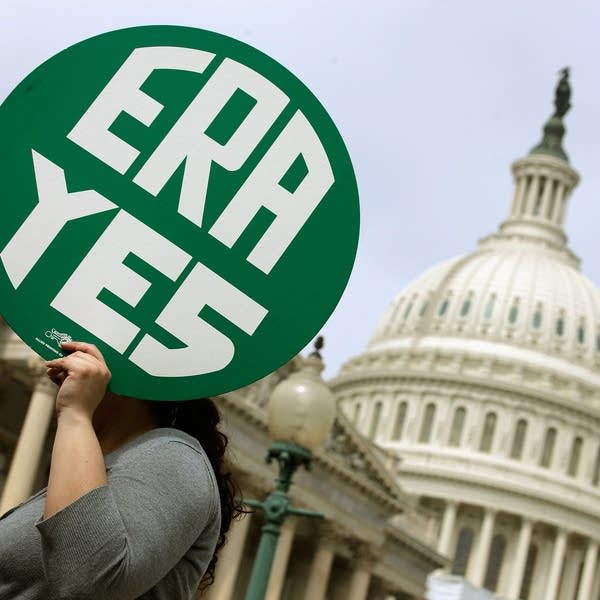Marketplace®
A vote for the ERA was long overdue, but it might be too late
To the surprise of many, the Constitution doesn’t say anything about equal protection for women’s rights. The Equal Rights Amendment is 97 years in the making.

Virginia became the 38th state to ratify the Equal Rights Amendment to the Constitution last week, giving the ERA the support it needs … about three decades too late.
Many Americans, some 80% according to one poll, think the U.S. Constitution already includes language ensuring equal protections for women’s rights, but it doesn’t. Since the suffrage movement of the last century, women have been pushing for a clear rule.
The 19th Amendment, guaranteeing womens’ right to vote, was ratified in 1920. But for decades the ERA couldn’t get the support it needed to proceed. Nevada ratified the ERA in 2017, and Illinois in 2018, but since the official deadline to pass the ERA has long expired, Virginia’s vote will be largely symbolic unless the courts or Congress take action.
On today’s show, we’re going having a conversation about how we got to this point — after 97 years of public consideration of an ERA — and what “equal rights” really means for women. Here to guide us through is Julie Suk, professor of sociology at City University of New York and author of an upcoming book about the ERA, “We the Women: The Forgotten Mothers of the Equal Rights Amendment.”
Plus, your feedback from last week’s Cambridge Analytica episode and maybe our funniest answer to the “Make Me Smart” question yet.
Did you know you can watch episodes of “Make Me Smart” on YouTube? Don’t forget to tell your Echo device “make me smart” for our daily Alexa explainers, and please subscribe to our newsletter. If you missed it, here’s last week’s issue.
The Team
- Kai Ryssdal Host
- Marissa Cabrera Senior Producer
- Bridget Bodnar Senior Producer
- Tony Wagner Digital Producer





